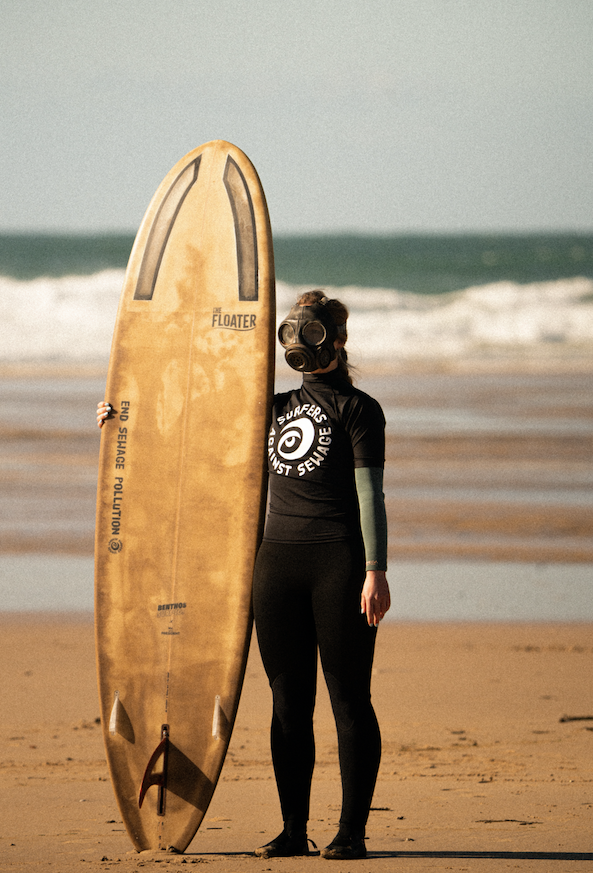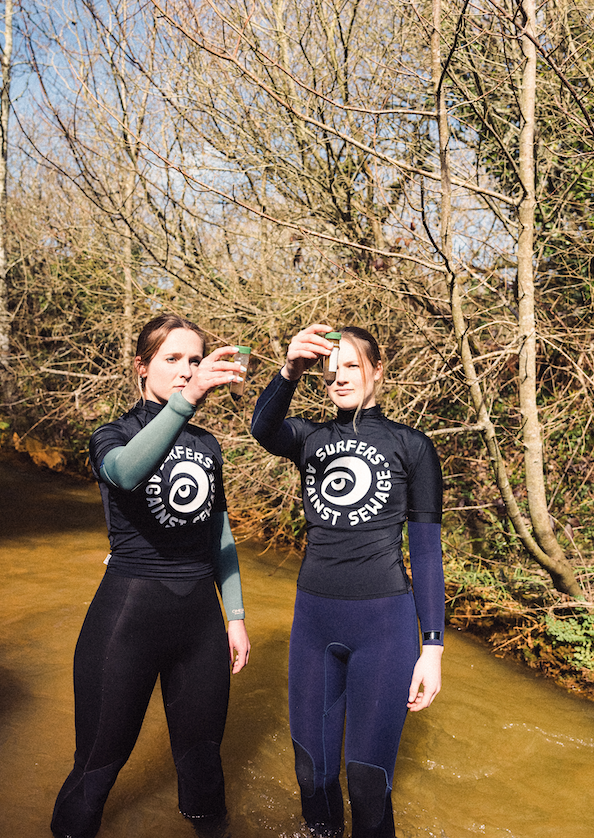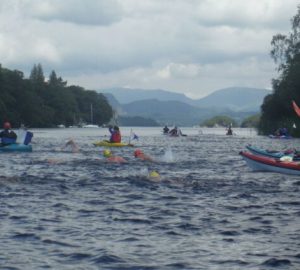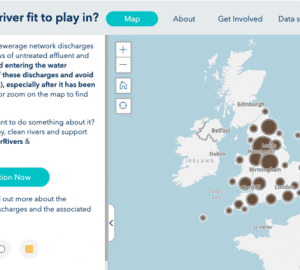
Trust in water companies at rock bottom as UK calls for ban on bonuses for profiteering CEOs
As England goes to the polls today, new data from Surfers Against Sewage (SAS) reveals that trust in water companies has reached an all-time low, and environmental issues will be the most important factor for voting among a quarter of the public
New data from charity Surfers Against Sewage (SAS) has revealed the extent of public distrust in water companies amid ongoing outrage at the levels of pollution occurring in UK waterways.
The UK Government and regulators have also come under fire, with seven in 10 (72%) saying the UK Government should be doing more to tackle sewage pollution. An even bigger proportion (85%) think water company regulators need to do more to make sure water companies reduce sewage pollution.
Voters’ concern
As England goes to the polls in the local elections today, the survey data reveals the issues that are most likely to inform the public’s vote. Over a quarter (28%) of respondents report that environmental issues will be their most important factor for voting. Among these people, 7 in 10 (69%) said they cared about water pollution the most.
SAS are seeking to convert public outrage into action by staging a mass paddle-out protest against sewage pollution, featuring simultaneous events at beaches and rivers across the UK on Saturday 20 May. The flagship protest in Brighton will feature an appearance by ‘The Floater’, a surfboard developed by Niall Jones using recycled materials and raw sewage collected from UK beaches.
Josh Harris, Head of Communications at Surfers Against Sewage, said: “Last year water companies paid out a combined £1 billion to their shareholders while dumping sewage into UK waterways almost 400,000 times. It’s time to put an end to this shameless profiteering. Water companies should not be allowed to profit from pollution, and our data shows that the public agree, with a huge majority calling for an end to industry fat cats pocketing bonuses whilst failing to meet minimum environmental standards.
“And it’s not just the water companies that need to clean up their act. The Government and regulators should be enforcing high standards and holding water companies to account, but it’s clear to the public that they’re not doing enough. We’ve suffered decades of broken sewers because of our broken system, and now the public have had enough and are demanding an to end this sewage scandal.”
Sacred spaces
The data also reveals the importance of river and sea spots for Brits’ physical and mental health. Over two thirds (64%) say access to blue space is beneficial for their physical health, whilst almost half (46%) go so far as to say that having limited access to blue space is detrimental for their mental health. Despite this, over two thirds (69%) say sewage pollution puts them off going in the sea and rivers in the UK.


Josh Harris, Head of Communications at SAS, continued: “We’re urging anyone who feels passionately about protecting our blue spaces to join us on 20 May as we rise up against the polluters and stage a mass paddle-out protest across the UK. Water companies are wreaking havoc on our precious rivers and seas, and we refuse to stay silent. Head to your nearest protest and make your voice heard.”
At least 12 protests will take place across the UK on 20 May, at key locations covering each water company catchment. Swimmers, paddlers, surfers, canoers, kayakers, paddle-boarders, windsurfers and anyone who cares about the health of their local blue spaces will take to the water, beach or riverbank to make their demands heard. SAS are also urging the public to sign their ‘Dirty Money’ petition, which demands an end to water companies profiting from pollution.
Kelsey-Michelle Guy, a volunteer who is organising a paddle-out protest in Plymouth, said, “I’m protesting because the whole situation is an utter disgrace. In 2023 we should not be having to fight to protect nature, or indeed our own health, just because the fat cats in power want more money. This affects everyone and it must stop. We need proper investment in infrastructure that can cope with the rising population, not more excuses and false promises from those who clearly don’t care about the people they claim to serve.”
A surfboard of rubbish and sewage
The Floater surfboard, developed by Niall Jones in conjunction with creative agency Mr President, will be present at the flagship paddle-out protest in Brighton. The board was developed by Jones using recycled materials, creating no further waste in the process. Jones collected raw sewage from the sea and turned it into resin that soaked into the board, creating unexpected and patterns.
To maximise the impact of the design, he included two transparent windows in the top of the board that display the two litres of sewage water contained within.
Just last week Labour’s Water Quality Bill – which would introduce automatic fines on water companies who dumped sewage, and set a legal target to reduce sewage discharges by 90% by 2030 – failed to win support in the House of Commons.
SAS’s new data comes just weeks after data from water companies and the Environment Agency revealed that sewage was dumped into rivers and seas in England, Scotland and Wales just under 400,000 times last year, despite 2022 being one of the driest years in decades.
Last year SAS found evidence of 143 ‘dry spills’ – sewage overflows that occurred when there had been no rain for two days – indicating potentially illegal activity by water companies. The charity is calling for an end to sewage discharges into UK bathing waters and a 90% reduction in sewage discharges by 2030.
For more environmental and water safety news, sign up to our newsletter








